Former Isis militant who grew up in the UK says coalition bombing campaign will drive more jihadists to launch attacks
In an interview with The Independent, the former jihadist revealed he once worked for Royal Mail as a postman
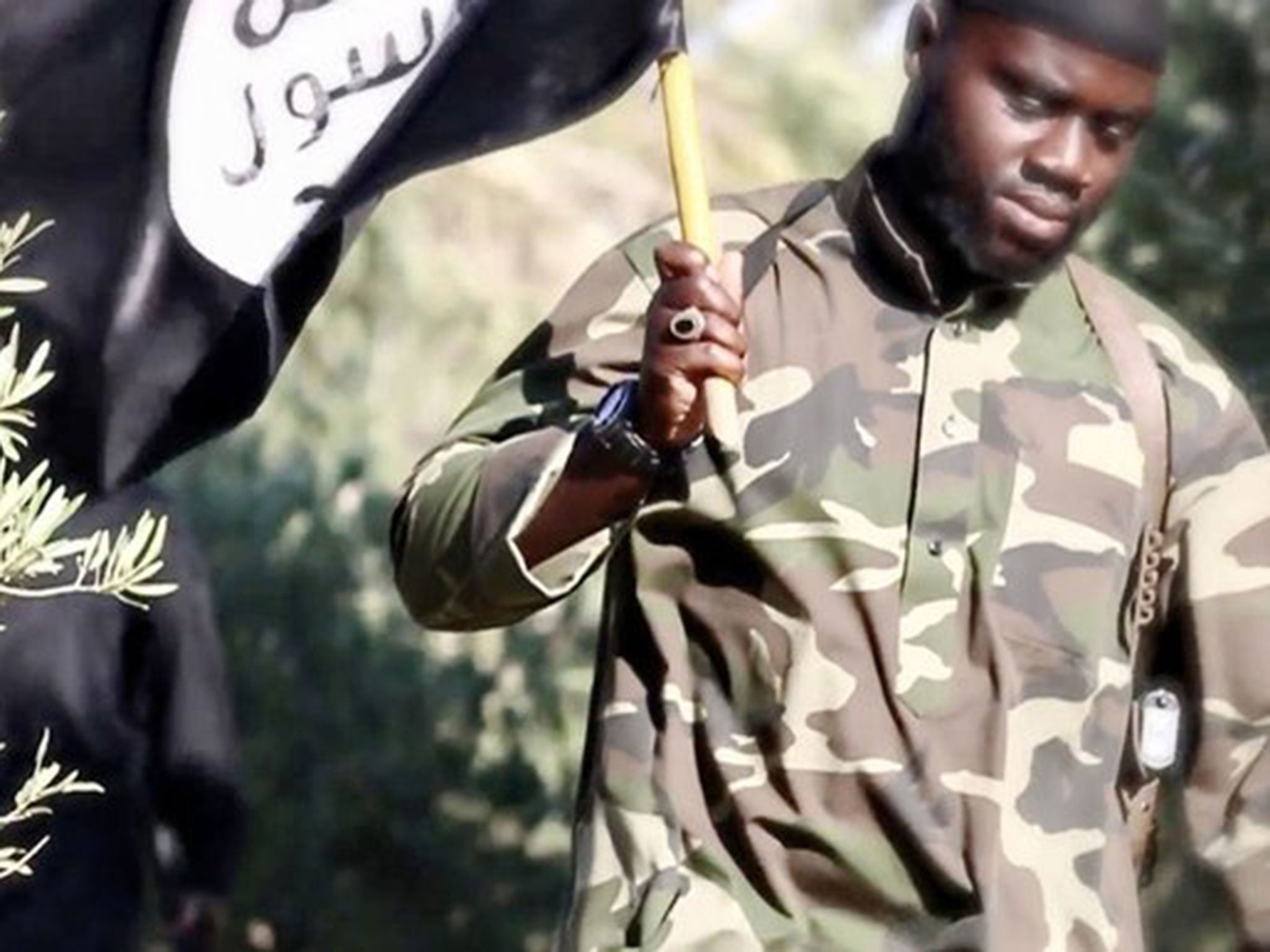
The US-led bombing campaign against Isis will drive more jihadists to launch terror attacks in the West, a former militant who grew up in the UK has said.
Harry Sarfo joined the so-called Islamic State in Syria and appeared in one of its notorious propaganda execution videos before becoming disillusioned with the scale of brutality he saw and fleeing the group.
In an exchange with The Independent from the German prison where he awaiting trial on terror charges, Sarfo claimed that the use of air strikes by the US-led coalition is inspiring more followers to commit atrocities in places including mainland Europe.
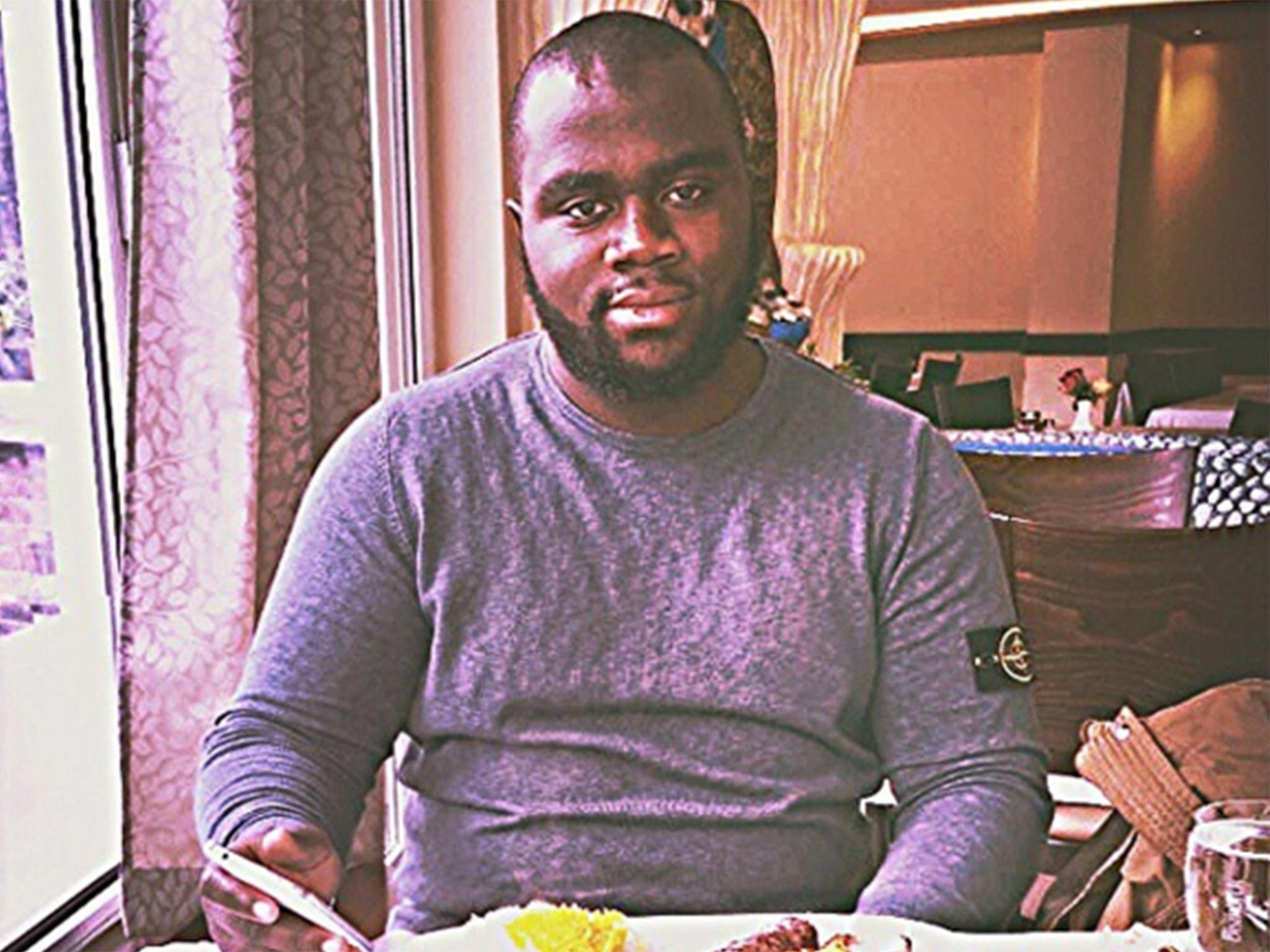
“The bombing campaign gives them more recruits, more men and children who will be willing to give their lives because they’ve lost their families in the bombing,” he said.
“For every bomb, there will be someone to bring terror to the West.
“They know the West is scared to put boots on the ground. Even if that happens one day, they’ve got plenty of men waiting for Western troops to arrive. For them the promise of paradise is all they want."
Sarfo was born in Germany and moved to London as a teenager, where he went to college and later converted to Islam. He was radicalised back in Germany before joining the “caliphate” in April 2015.
He was arrested upon his return to Europe three months later and has now been indicted on charges including being a member of a foreign terrorist group and violating German weapons laws.
German prosecutors say that Sarfo, who they name as Harry S, "declared himself prepared to fight in a special unit of the organisation” and was given specialist combat training handling automatic weapons.
After leaving the unit in June 2015, he appeared carrying Isis' black flag in a video that called for Germans to join Isis in Syria, or attack “infidels” at home.
In an interview conducted over email via his lawyer, Sarfo says the bloody consequences of Isis' extreme interpretation of Sharia law drove him to turn his back on the terror group.
“I was training in the Islamic State's special force in Syria and around Raqqa, where women are totally covered and members of the Islamic State are armed with weapons such as Kalashnikovs, M-14s and M-16s,” he said.
“Shops are closing when the call of prayer starts and open again once prayer is finished. There are checkpoints everywhere with bombardments nearly every day.
“I witnessed stonings, beheadings, shootings, hands chopped off and many other things. I've seen child soldiers - 13-year-old boys with explosive belts and Kalashnikovs. Some boys even driving cars and involved in executions.
“My worst memory is of the execution of six men shot in the head by Kalashnikovs. The chopping off of a man's hand and making him hold it with the other hand.
“The Islamic State is not just un-Islamic, it is inhuman. A blood-related brother killed his own brother on suspicion of being a spy. They gave him the order to kill him. It is friends killing friends.”
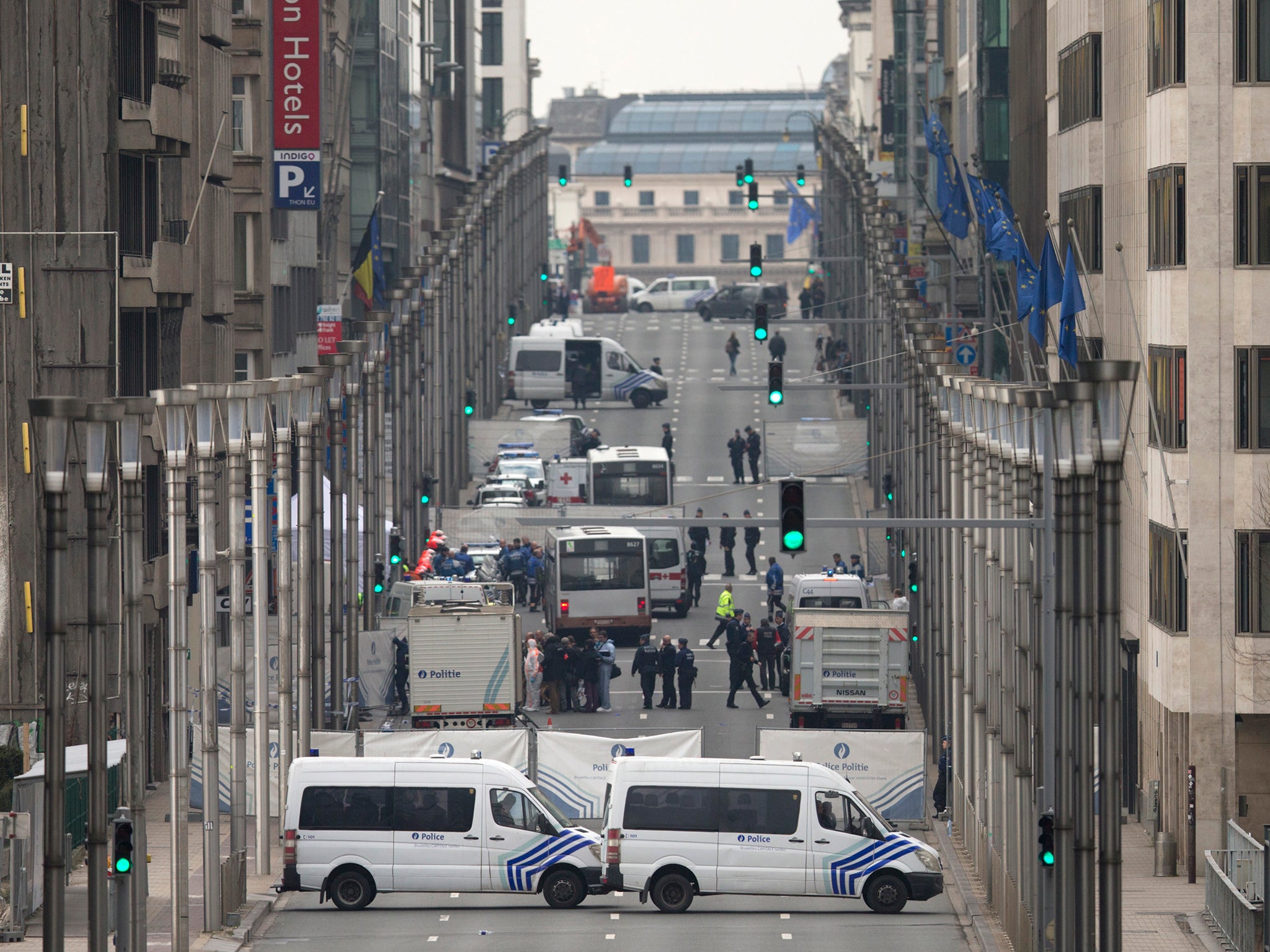
After an upbringing marked by poverty, displacement and crime that eventually landed him in prison with a known jihadist recruiter, Sarfo recalled the image of “people from all parts of the world reunited under one flag” as the key attraction to the group.
During his time in Raqqa, Sarfo described overhearing many discussions about attacks in Europe, saying he and other foreign jihadists were asked whether they would be prepared to carry out atrocities in the UK, Germany and “Dar al-Kufr” - the land of disbelievers.
He insists he declined but it appears that many of his fellow European fighters had no such reservations.
Just months after he was questioned by recruiters in April, a group of militants exploited the refugee crisis to re-enter Europe and prepare for the massacres that would kill 130 people in Paris.
Ringleader Abdelhamid Abaaoud told a friend he was among 90 Isis terrorists who returned to the continent and gone to ground in preparation for further atrocities, possibly including the bombings that left more than 30 people dead in Belgium last month.
Europol estimates that up to 5,000 European jihadists may have undergone training at terror camps and the agency's director has warned the continent faces its “biggest terror threat in more than a decade” from returning fighters.
Sarfo moved from his hometown of Bremen to London as a teenager and went on to attend three colleges in the British capital, converting to Islam at the age of 20 after being introduced to the religion by friends and becoming a speaker to local “Muslim youth” himself.
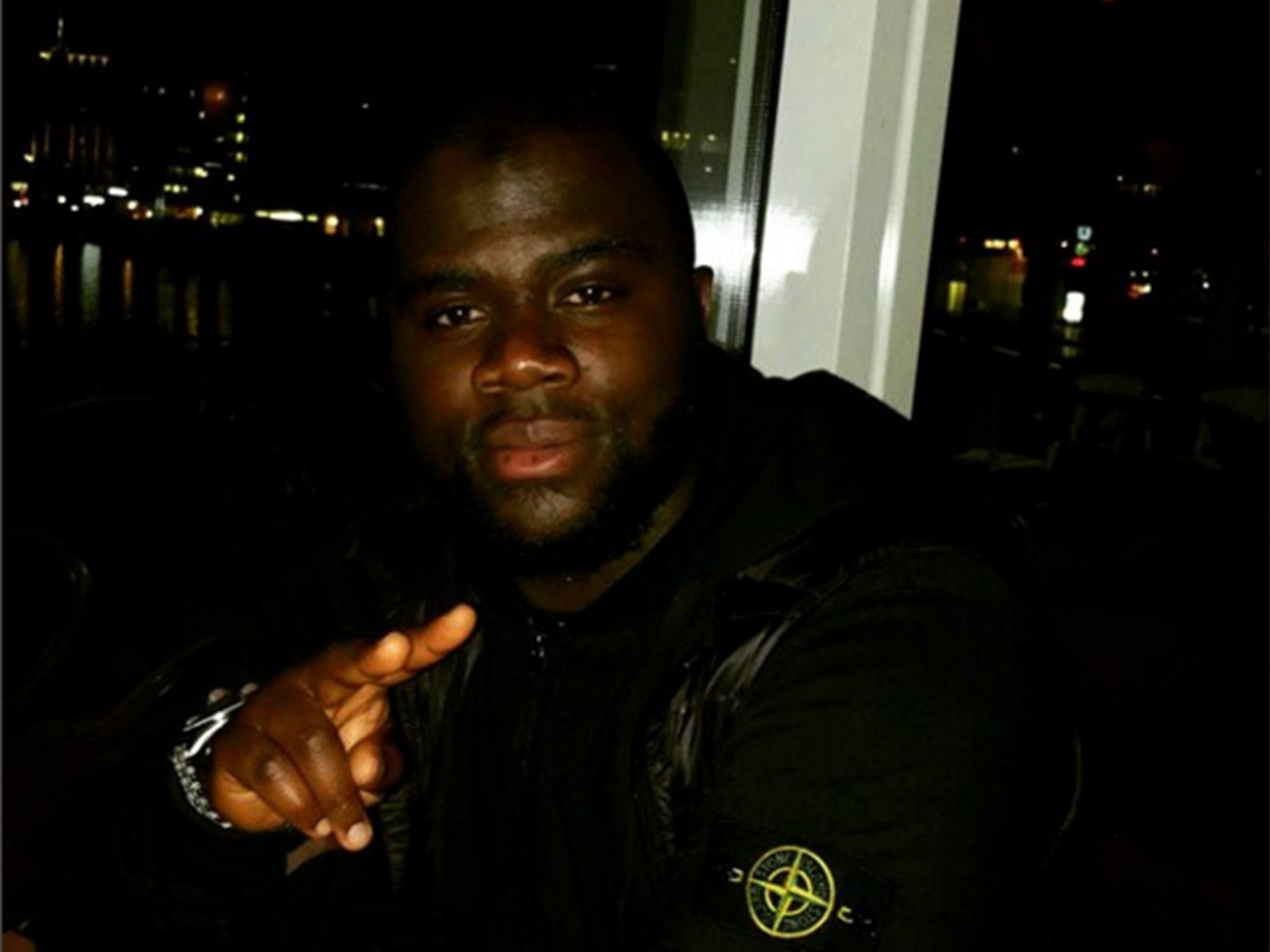
After studying for courses in English, construction and housing, and gaining part time work at Royal Mail and Wickes, his life in the UK was cut short when he was forced to return to Germany to serve a prison sentence for a 2010 robbery.
In jail he found himself in close quarters with a known jihadi recruiter linked with al-Qaeda, who taught him the “ideology of tajweed and jihad” before he joined a since-closed radical mosque in Bremen upon his release.
A failed attempt to travel to Syria on a supposed charity mission resulted in repeated arrests and Sarfo blames police treatment for his eventual decision to join Isis in early April 2015.
He said security measures that saw him forced to hand over his passport and ordered him to report to a police station twice a week as his home was repeatedly raided drove him into the hands of a jihadist recruiter.
“I wanted to start a new life for me and my wife,” he said. “The police and the authorities destroyed it. They made me become the man they wanted.”
Similar arguments have been made by several convicted extremists, alongside their families, friends and supporters.
Mohammed Emwazi, the British Isis militant known as Jihadi John, was memorably described by the Cage advocacy group as a “beautiful young man” before being subjected to what it characterised as four years of “harassment” by security agencies.
Charlie Winter, a terrorism analyst, said blaming security services has become a “standard refrain” in the current discourse on extremism, especially from “from individuals who are trying to blame others for the choices they have made”.
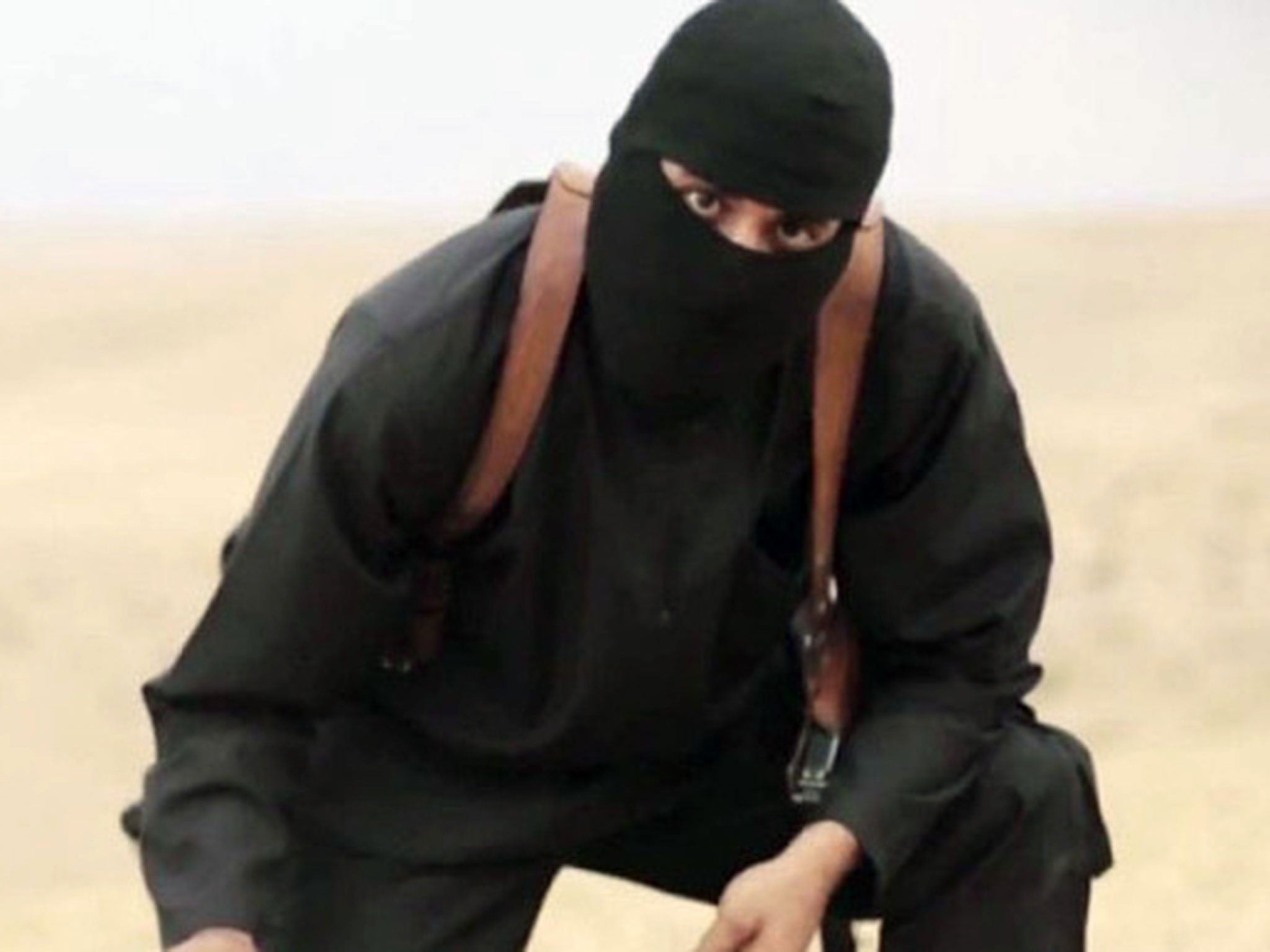
Mr Winter, a senior research associate and terrorism analyst at Georgia State University, said that although police treatment and alienation may have compounded existing grievances, it alone would not cause someone to embrace Isis ideology.
“You will see people claiming ‘it’s not my fault, it’s persecution, someone made me do it’ trying to avoid their own agency,” Mr Winter added.
“It’s clear that Sarfo possibly had a terrible time. A troubled person, petty crime, prison, a charismatic radical teacher – that’s a pattern that’s being repeated time and time against and it’s not very surprising.”
He added that the former fighter’s claims that the international bombing campaign against Isis was inspiring more terror attacks by killing civilians parroted the group’s own propaganda.
Mr Winter said: “In any sort of military campaign, collateral damage will be welcomed by the group in question - not openly, but they will present it as crimes being committed against them as a way of legitimising their presence as a group.
“It serves Isis’ agenda, claiming to be the protectors of Sunni Muslims. The fact of the matter is that the victimhood narrative is always going to be used.”
His claims that coalition air strikes have killed women and children in Isis territories could not be verified, although the Pentagon has admitted several civilian deaths during the period he was in Syria and is investigating other alleged incidents.
Isis has citied air strikes against its strongholds as the motivation for the attacks in Brussels and Paris, as well as the downing of a Russian passenger plane in Egypt.
The Home Office, German interior ministry and federal prosecutor declined to comment on Sarfo’s claims while the case continues.
Join our commenting forum
Join thought-provoking conversations, follow other Independent readers and see their replies
Comments